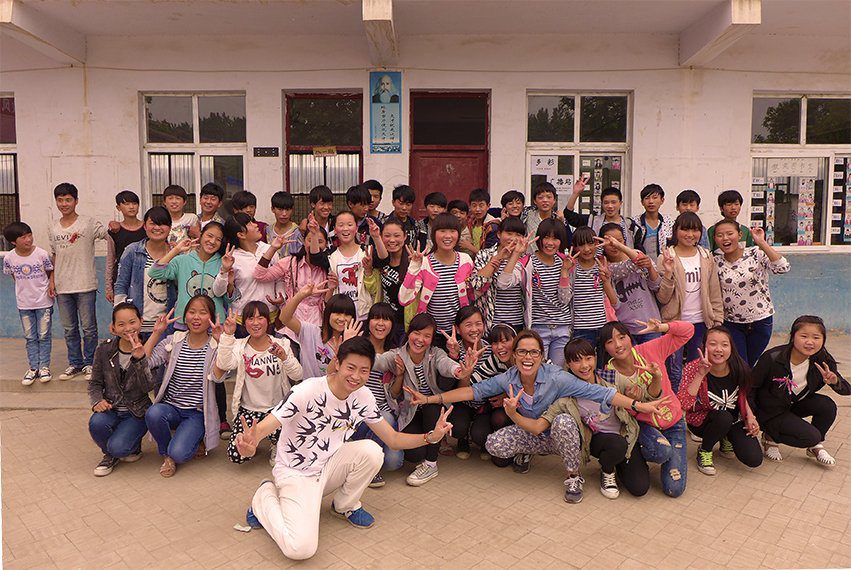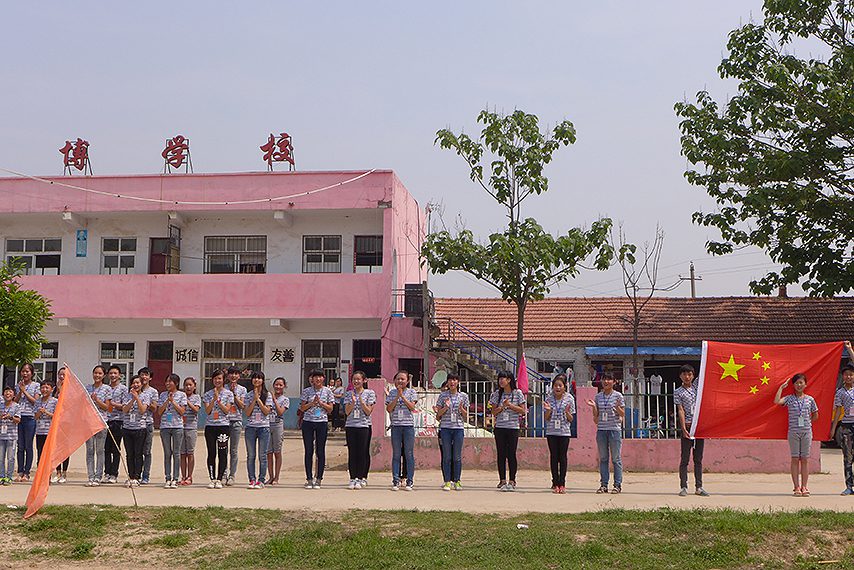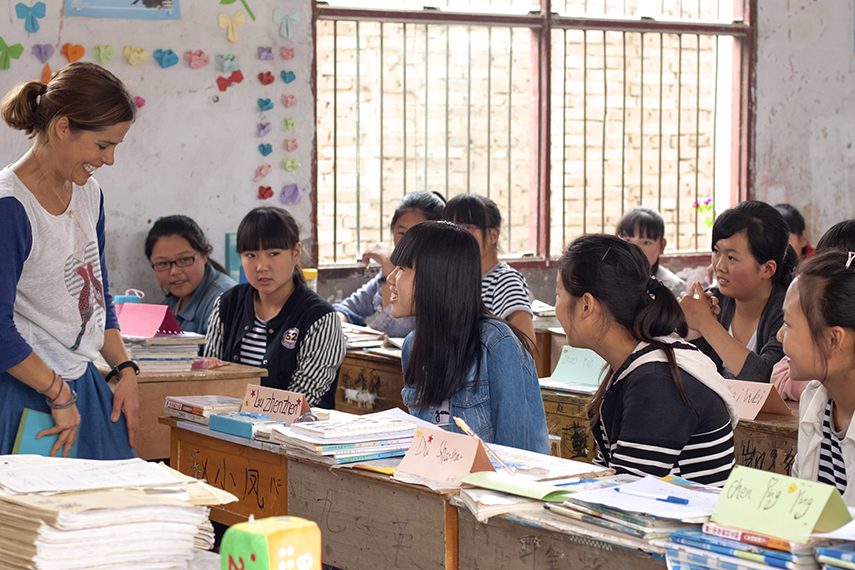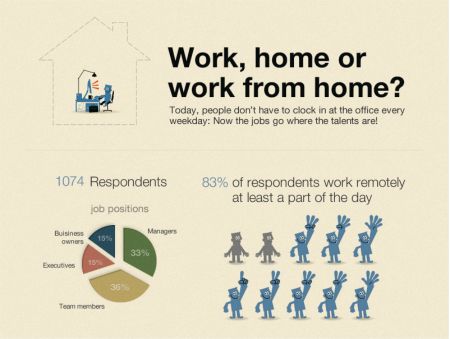
Guest Post by Viveka Nordström
Last May I had an unforgettable experience teaching English to teenagers in the province of Henan in rural China. The trip was organised by Stepping Stones, an association for which I volunteer weekly in Shanghai, helping migrant children to learn English. Assisted by Chinese employees from PriceWaterHouseCoopers joining as part of a CSR project, we were seven Westerners each teaching two classes of different grades for one week. My students were in Grade 8 and my excellent assistant was Jimmy, the only male PWC-volunteer.
Located in the middle of wheat fields, a half hour drive from the town of Luyi where we stayed, the school has around 700 students from Kindergarten to Grade 9. Most of the children are so called “left-behind”, either living in the school or with relatives in neighbouring villages, because their parents have migrated to larger cities to find work. The rather awful concept of the “left-behind” was particularly poignant on the last day’s musical show where several of the performances were about a lonely child thorn in her dreams between a teacher and a missing mother.
The school principal, a charming woman in her thirties, founded the school eight years ago because she felt a huge need for boarding schools in the region. With minimal yearly school fees paid by the parents and some governmental funding, shrinking every year due to the all-prevailing corruption, her work is a tour de force in social entrepreneurship. It proves that empathy actually exists in a China where so much seems to be driven by greed and making money.

The boarding students sleep in bunk beds in crowded dormitories or just roll out matrasses in the classrooms. For two RMB a day, they are served a meal consisting of rice, broth and a few veggies. The sanitary facilities are far below what Western authorities would approve of. The school desks are scruffy, the over-packed classrooms dusty and dirty. Outside is even dustier. The schoolyard has a basketball hoop and a few ping pong tables but no rackets. (I was amazed at how well they played with their hands or wooden planks). The skipping ropes we brought with us were needless to say very popular.
“Can’t we help them repaint the class rooms at least?” I asked our Stepping Stones coordinator. The answer was that the school would rather get money for a new copy machine or other teaching materials. Fair enough. If there is one thing I’ve learned during my years in Asia (I’ve lived eight years in Indonesia) is that if you hardly have the means to buy food, there is no way you spend time and money to clean your backyard, let alone sorting waste.
But behind the dust and dirt, there is a fantastic energy in this school. The smaller kids play with the bigger kids in what seems to be one big family or community. No parents around but lots of friends. The smaller children are quite grubby but the older look just as handsome as our teenagers. The girls have long shiny hairs, the boys cool haircuts and they are dressed in trendy clothes. “Shopping” was one of the most common answers when I asked my students about their favourite hobby. In the weekends, they can take the local bus to the bigger cities to buy clothes with money their parents send them from time to time. I was surprised that the older children all had mobile phones but they mostly used them for taking pictures. Lots of pictures. I haven’t been so photographed since the day of my wedding!
Many children drop out of school around Grade 6 or 7 to work in factories. But the school principal was proud to tell us that a high percentage of those who make it to Grade 9 also continue to High School. And several even dream of pursuing higher education and becoming scientists, engineers, teachers, policemen, musicians or astronauts.
So what did I teach my students? Well, I must admit that I was quite nervous when planning my lessons. Stepping Stones had briefed us that we shouldn’t expect to make a huge impact on the children’s English but that we were there to “grow a seed” and make them enjoy English as a foreign language.
But how much English did they speak? What level would I aim at?
Fortunately, I opted for a good level. The grammar they studied was quite advanced but their verbal English as well as their pronunciation poor. I used alternative teaching methods with lots of games up my sleeves. Standing in a circle taking turns answering questions when the music stops, games outside, charades, whispering games etc to make them speak and enjoy the classes. Very different from what Chinese children are used to: a teacher preaching in front of the classroom and the pupils endlessly repeating.

One day, several well-dressed men were walking around the school premises taking pictures and listening to our classes through the windows. We were told that they were looking for a drunk man who had been spotted the previous day. But these men were most probably party officials checking that we foreigners wàiguó rén didn’t teach their children “inappropriate things”.
A trip like this is also about bringing two communities together. Many children had never seen foreigners before which is why we were met with such curiosity every morning. Henan is not a tourist destination. Meaning “south of the river”, Henan lies south of the Yellow River in central China and is one of the most densely populated provinces of China with more than 95 million inhabitants. Although a major agricultural producer, it is also one of the poorest provinces because of the increasing population and over-farmed land. In the nineties, Henan was hit the hardest by the AIDS-scandal, a tragedy that the authorities desperately tried to cover up. Only in Henan, as many as half a million were infected by HIV due to unhygienic blood collection.
At our last lunch hosted by the school principal in the local village restaurant, we were served endless dishes of Henan specialties – first dish out: pig’s ears! I sat next to one of the young teachers dressed in what was their uniform for the week, a white shirt and a black tight skirt. She had never sat next to a foreigner before and could not stop looking at my eyelashes or praise me for my chopstick skills. The week in Henan was probably just as important and mind-opening for her and the local teachers as for the children.
I do hope that our short stay had a positive effect on the students and their English skills. One thing is for sure: this week made a huge impact on me!
About Stepping Stones
Founded in 2006, Stepping Stones’ mission is to improve the education and general welfare of migrant children and other disadvantaged groups in China.
Even though China has reformed its notorious household registration system hukou, which discriminates by linking access to services to residential status, there is still a distinction between urban and rural residents. Migrant workers and their children are like second-class citizens with less healthcare and education benefits.
Stepping Stones currently has around 400 expatriate and local Chinese volunteers teaching English in Shanghai’s migrant schools and community centres. As English is one of the three core subjects in the Chinese education system, English is a key to educational and career success.
In the project “I Care”, Stepping Stones provides free eye tests, spectacles and simple surgery to students with eye problems.
About Viveka Nordström
With dual French and Swedish nationality, Viveka started travelling at an early age. She has lived more than fifteen years abroad in countries such as France, Italy, Indonesia, Holland and the UK. Her career has predominantly been in the art world, working with modern and contemporary art for auction houses and galleries. She has also organised corporate and cultural events, and raised funds for a Swedish foundation granting the wishes of critically ill children. She currently lives in Shanghai with her husband and two boys where she regularly volunteers for Stepping Stones, studies Chinese, paints Chinese ink and watercolor and trains karate.”

IntelligentHQ Your New Business Network.
IntelligentHQ is a Business network and an expert source for finance, capital markets and intelligence for thousands of global business professionals, startups, and companies.
We exist at the point of intersection between technology, social media, finance and innovation.
IntelligentHQ leverages innovation and scale of social digital technology, analytics, news and distribution to create an unparalleled, full digital medium and social business network spectrum.
IntelligentHQ is working hard, to become a trusted, and indispensable source of business news and analytics, within financial services and its associated supply chains and ecosystems.































